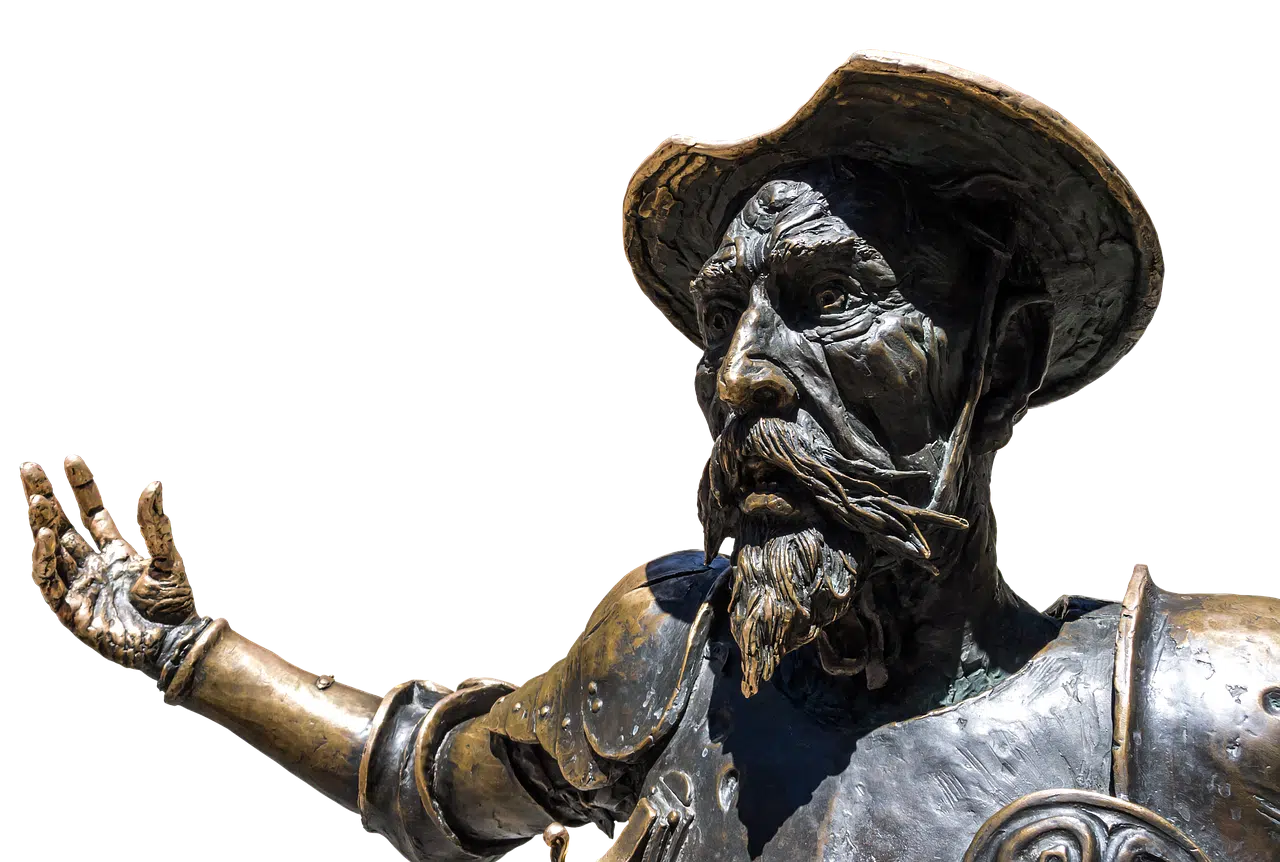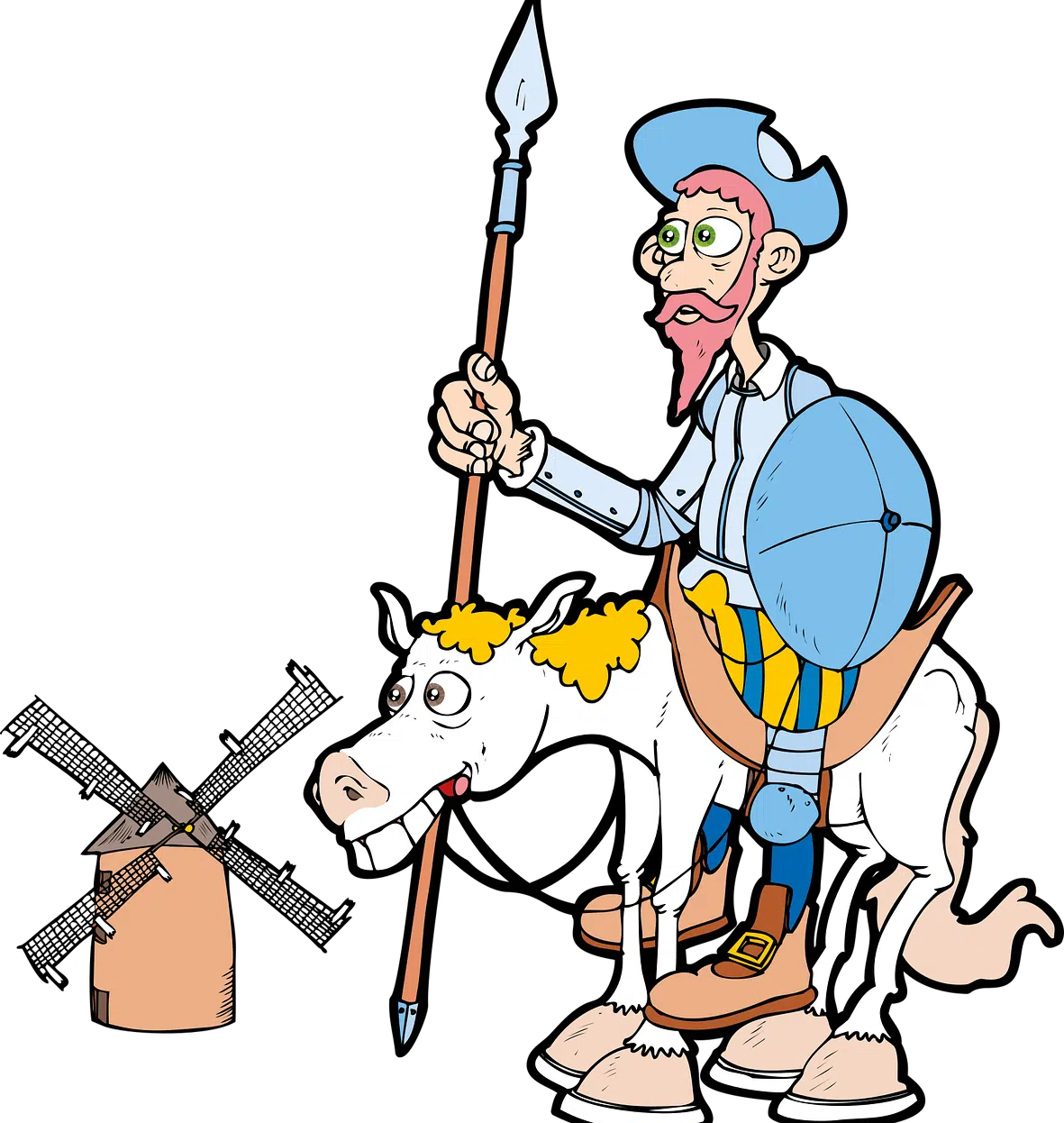
The quixotic is associated with the defense of ideals and trying to achieve objectives beyond the difficulties.
Quixotic is an adjective linked to “The Ingenious Gentleman Don Quixote of La Mancha” , the novel that Miguel de Cervantes Saavedra presented in 1605 and from which the aforementioned term is derived.
This book, which parodies chivalric tales, has as its central character Don Quixote , a fanciful man who believed he was fighting fearsome giants but was actually fighting simple windmills. From then on, the conduct of someone who is convinced of the existence of things that are actually imaginary , or who strives to achieve impossible things , began to be described as quixotic .
Quixotic , in this context, is someone who acts quixotically or something that is done quixotically . In a similar sense, a quixote is said to be someone who defends his ideals above all else and who strives to achieve goals that are unlikely to be achieved.
For example: "Almost two centuries ago, my great-grandfather undertook the quixotic task of reforesting these lands to found a town" , "The quixotic man jumped into the river with the intention of recovering his beloved's ring, even though it had already sunk" , "I am not interested in quixotic projects: I want rational proposals that we can carry out in the short term" .
Use of the adjective quixotic in different contexts
The adjective quixotic is often used in the field of sport to describe those epic performances that go down in history due to the difficulties of the context: “In a quixotic match, the Russian tennis player defeated the world number 1 in five sets after saving eight match points and recovering from a strong contracture.”
Given the relationship between Don Quixote and his beloved Dulcinea del Toboso , it is also possible to use the adjective quixotic to describe a love relationship. This character, or rather the being that Don Quixote wants to see in her, is not real, since she is an idealized woman who drives him to live all his adventures, who justifies each of his efforts and whose love represents the reward at the end of the road. Their relationship is an illusion, something of fantasy, intangible.
For many readers and scholars of Cervantes ' brilliant work, a quixotic character must have a number of very characteristic traits, which revolve around an extraordinary courage combined with an eccentricity that is impossible to ignore . The objectives of someone quixotic must be confusing and absurd, which can give rise to moments of humor while also awakening affection in those who observe him. The passion and determination of someone who leaves everything for a dream are stronger than the inconsistencies that cover up his plans.

There are those who associate the quixotic with folly.
Between commitment and folly
Depending on one's point of view, a world with more quixotic beings would be better, since one of the most important characteristics of Quixote is his commitment to causes he believes to be just , which he defends selflessly to the ultimate consequences. We live in a reality that is less and less spontaneous, in systems that teach us the path we "must" follow, even before we learn to stand up straight. They don't allow us to choose. Going off the path is a bad sign, it speaks of disorder, it smells of danger; it is quixotic.
Of course, it's also important to understand the lack of common sense behind quixotic behavior; pursuing our ideals without thinking about the consequences may seem heroic, like someone who refuses to live passively, but it also carries risks that not all of us are willing to take. Fighting for our dreams is admirable, but sometimes that energy is necessary to defend our real world.
